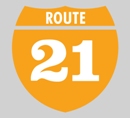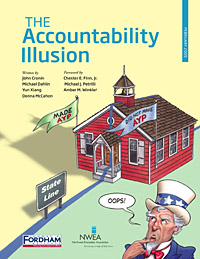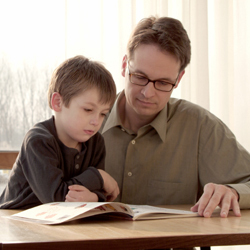To continue my previous post on Are Homeschooled Kids at a Disadvantage on the Opposing Views Debate …
The California Federation of Teachers states:
Every parent wants the best education for his or her child. All parents have the right to be involved in the education of their own children, and are entitled to seek the type of education that they believe best addresses their child’s needs.
At the same time, all students deserve to have a quality education. These two goals-parents’ rights, and quality education–might, under the best of conditions, come together in excellent education delivered at home. But home schooling also has the potential of creating an inadequate overall education. While public education is certainly not perfect, it does provide for common standards, transparent evaluation processes for teaching and learning, administrative oversight and accountability, and the opportunity to learn within a diverse community. Home schooling often fails to meet at least some and sometimes all of these criteria.
Well… where to begin… Of course all parents want what’s best for their children’s education. And yes they ARE entitled (by law) to seek out the type of education that is best for their children. This is NO thanks by the way to the teacher’s unions. The state and teacher’s unions have fought tooth and nail against both homeschooling and charter schools. Way back when, they even fought against private religious schools (Pierce v. Society of Sisters 1925). The type of parental involvement the teacher’s union wants in this case, is the the type and kind that they can dictate.
“All students deserve a quality education. ” Who can argue with that? We all want that for our own children and for all the children of this country… do we not? Ideally, parental rights and quality education do come together. It can happen with any type of education, be it public school, private school, charter school or homeschool. Often, it does not, especially with the first example, I am sorry to say. My own experience with private schools has shown me that it can happen just as often as it doesn’t happen.
I take issue with the part of ‘homeschooling having the potential to create an inadequate overall education.’ Sure it has the potential… just as public schools do. There seems to be plenty of proof of the inadequacies of the overall education received in public schools though – just read the varied reports from “A Nation at Risk” written in 1983 all the way down to “Diploma to Nowhere” released earlier this month.
Public Education has no “Common Standard” – each state sets its own standard. Then each district interprets the state standard from there. NCLB was supposed to help on that issue by setting a common bar, but the law instead again lets each state set it’s own standard. So magically all states are again “above average.” Amazing!
Transparent evaluation process for teaching and learning? Administrative accountability? Is this the teaching style du-jour? Just try to find out what and how your child is taught at the local school. Just try to get a clear answer from the local school board on anything. The district I live in uses Everyday Mathematics for the 1-6 Math program. It is not the most popular among the parents here, and the district has taken a lot of heat from the parents for using it. Despite the protests and demands of the parents to start using a better program that would actually teach children math, the district continues to use the program because ‘they know best.’ So much for accountability.
Homeschooling doesn’t fail to live up to any of these things. It is simply different. It’s comparing apples to oranges. I worked in my dd private school and teaching a class full of 25 kids is totally different than teaching your own children. What works in one, does not work in the other – simple as that.
Common standards won’t work because each child/family/situation is different. That is the beauty of homeschooling. If the child doesn’t get adding mixed fractions in one day, you can repeat it in the next lesson and the next and so on, until they do get it. With a room full of kids, you can’t do that. You have to keep moving. The child has to get help from the parent or a tutor or as often is the case, simply not learn it. There are general guidelines that most homeschoolers follow for what their x-grader needs to know. Some are ahead of that, others behind. By the end of high school, I think it pretty much evens out.
As far as accountability, it varies from state to state how accountable homeschoolers are. Some have more over-site than others. Some have to show more “proof of progress” than others. Some have certain subjects they are required to teach. Some must register with their State Department of Education/County Department of Education. This mish-mash of regulation is a reflection of the chaos of the education system as a whole.
In general homeschoolers would rather just be left alone. Who wants to be told what to do all the time in regards to educating their children. It’s like having a bad mother-in-law! Personally, I don’t have a problem with registering as a homeschooler with the local Dept. of Education, being required to teach certain subjects and of having to take a standardized test every two years or so. I would like to choose my test among several because I believe some are better than others. But other than that I don’t think the state should be telling me how to educate my child. I certainly can’t do any worse than some of the public school results I’ve seen.
Okay… I’ll step off my soapbox now.





 There is an excellent post on the
There is an excellent post on the 
